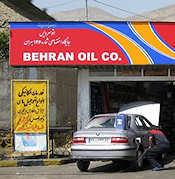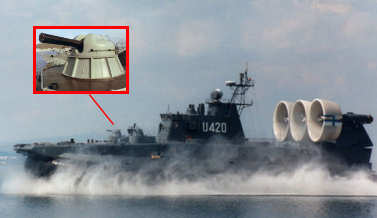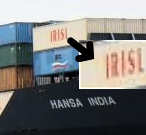 The House Committee on Foreign Affairs yesterday approved proposed legislation, the Iran Refined Petroleum Sanctions Act of 2009, which would, if adopted, further tighten sanctions on Iran. In an appropriations measure sent to the President earlier this month, companies that sold more than $1,000,000 dollars in refined petroleum products to Iran or engaged in services worth more than $1,000,000 that contributed to the ability of Iran to import such products would be precluded from selling oil to the Department of Energy for the Strategic Petroleum Reserve. Under the House’s proposed legislation companies that imported only $200,000 of petroleum products into Iran, or provided only $200,000 worth of services assisting such imports, would be subject to the sanctions provided under the Iran Sanctions Act. Those sanctions include. among the six available sanctions, denial of export licenses and prohibitions of imports into the United States.
The House Committee on Foreign Affairs yesterday approved proposed legislation, the Iran Refined Petroleum Sanctions Act of 2009, which would, if adopted, further tighten sanctions on Iran. In an appropriations measure sent to the President earlier this month, companies that sold more than $1,000,000 dollars in refined petroleum products to Iran or engaged in services worth more than $1,000,000 that contributed to the ability of Iran to import such products would be precluded from selling oil to the Department of Energy for the Strategic Petroleum Reserve. Under the House’s proposed legislation companies that imported only $200,000 of petroleum products into Iran, or provided only $200,000 worth of services assisting such imports, would be subject to the sanctions provided under the Iran Sanctions Act. Those sanctions include. among the six available sanctions, denial of export licenses and prohibitions of imports into the United States.
Of course, U.S. companies are already prohibited from exporting petroleum products to Iran, so the appropriations measure and the House proposal are both directed at foreign companies that provide gasoline to Iran. Iran gets most of its gasoline from British Petroleum (BP), France’s Total, Switzerland’s Vitol and Glencore, the Swiss-Dutch firm Trafigura, and India’s Reliance.
When the Iran Sanctions Act, which prohibited investments over $20 million in Iran’s energy sector, became law in 1996, the EU threatened a row at the WTO claiming that such secondary boycotts violated the U.S.’s WTO obligations. The Clinton administration used the national security exception in section 9(c) of the Act to avoid imposing sanction on European companies investing in Iran’s energy sector. That option would remain available to the White House under the proposed House legislation but not under the appropriations measure which would appear to automatically impose the sanction of forbidding sales to the Strategic Petroleum Reserve.
Leaving aside the WTO implications of the House’s proposed legislation, there is a good argument that it would be counterproductive to U.S. interests. No one seriously claims that gasoline is materially contributing to Iran’s nuclear proliferation activities. Instead, the measure is intended to impose severe hardship to Iran’s economy. Average Iranians would be just as hard hit, if not more so, by the sanctions as the Iranian government. This is not likely to generate any good will for the United States among Iranians currently disaffected with their own government. When people can’t drive to their jobs, who are they going to blame?

 Posted by
Posted by  Category:
Category: 

 An
An  Robert J. Cabelly, a D.C.-based lobbyist, has been indicted for violations, among other things, of the International Emergency Economic Powers Act in connection with lobbying and other activities he was alleged to have engaged in on behalf of the Government of Sudan. A copy of the indictment can be read by clicking
Robert J. Cabelly, a D.C.-based lobbyist, has been indicted for violations, among other things, of the International Emergency Economic Powers Act in connection with lobbying and other activities he was alleged to have engaged in on behalf of the Government of Sudan. A copy of the indictment can be read by clicking 



